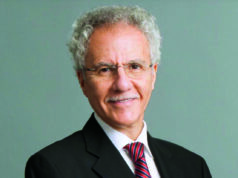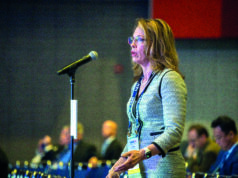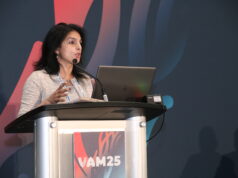
When is the right time to start a family in vascular surgery? That was a core question posed during the 2025 Vascular Annual Meeting (VAM) in New Orleans (June 4–7) in a dedicated session aimed at tackling issues around parenthood for those practicing in the specialty. A panel of vascular surgeons and trainees sought to address the crucial conundrum.
One answer: There is no definitive timeline for pregnancy in the operating room, said Christina Cui, MD, a vascular resident at Duke University in Durham, North Carolina, and a moderator and panelist representing the trainee perspective. She emphasized that pregnancy is a personal decision that individuals must navigate with their families, not with hospitals or program directors.
“There is so much self-imposed stigma around this topic,” she explained. “As women, we go through a lot of these issues on our own; the mental load you have to deal with on your own and [with] your partner—understand you can share that bargain.”
The session, titled “Carrying the Weight: Parenthood in Vascular Surgery,” featured perspectives from trainees, faculty from private practice, and others sharing personal experiences.
Dawn Coleman, MD, division chief of vascular and endovascular surgery at Duke University, raised a question from the audience about the challenges vascular surgeons face in balancing patient care and team dynamics when a team member takes leave. She noted the emotional implications for both the individual on leave and the rest of the team.
“If we can solve this, we can solve world peace,” answered Dejah R. Judelson, MD, a vascular surgeon at UMass Memorial Health in Worcester, Massachusetts, and a panelist from the academic perspective.
Judelson pointed out that past discussions have focused on the additional workload for the remaining team members. The panel agreed that it is not practical to merely front-load or back-load calls to compensate for someone on leave. Instead, she believes the solution involves cross-field conversations to find equitable ways to address these situations.
“In terms of training, it’s crucial for attending physicians to step in and take on primary calls when needed,” Judelson said. During her first pregnancy, she chose to front-load her calls to avoid being a burden to her partners. However, during her subsequent pregnancies, she realized that she didn’t have that bandwidth or functional ability.
“It’s essential to acknowledge that everyone has their limits while also being sensitive to others’ feelings and opinions. We all need to support one another, regardless of the circumstances,” Judelson added.












